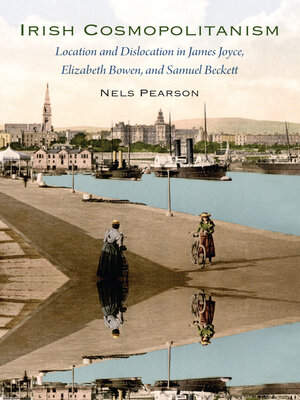Irish Cosmopolitanism
ebook ∣ Location and Dislocation in James Joyce, Elizabeth Bowen, and Samuel Beckett
By Nels Pearson

Sign up to save your library
With an OverDrive account, you can save your favorite libraries for at-a-glance information about availability. Find out more about OverDrive accounts.
Find this title in Libby, the library reading app by OverDrive.



Search for a digital library with this title
Title found at these libraries:
| Library Name | Distance |
|---|---|
| Loading... |
Looking at the writing of three Irish expatriates who lived in Trieste, London, and Paris, Nels Pearson challenges conventional critical trends that view their work as either affirming Irish anti-colonial sentiment or embracing international identity. In reality, he argues, these writers work constantly back and forth between a sense of national belonging that remains incomplete and ideas of human universality tied to their new global environments. For these and many other Irish writers, national and international concerns do not conflict, but overlap—and the interplay between them motivates Irish modernism.
Joyce's Ulysses strives to articulate the interdependence of an Irish identity and a universal perspective. Bowen's exiled, unrooted characters were never firmly rooted in the first place. And in Beckett, the unsettled origin is felt most keenly when it is abandoned for exile. These writers demonstrate the displacement felt by many Irish citizens in an ever-changing Ireland unsteadied by long and turbulent decolonization. Ultimately, their work displays a twofold struggle to pinpoint national identity while adapting to a fluid cosmopolitan world.







